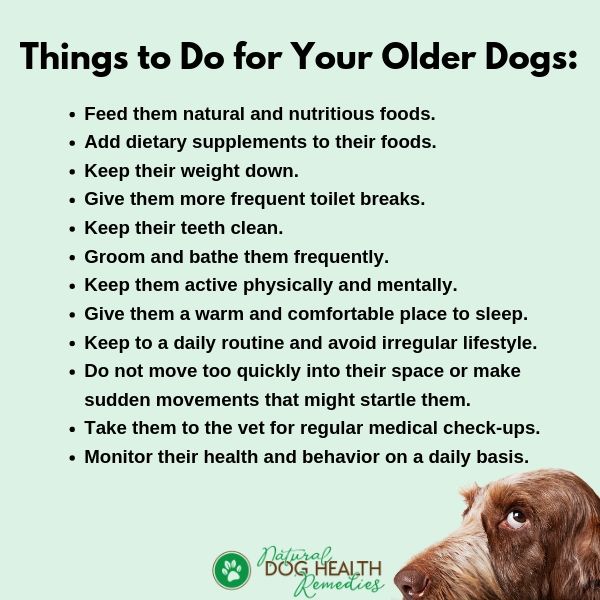News Blast
Your daily source for breaking news and insightful articles.
When Your Pet Goes Gray: Senior Care Secrets You Wish You Knew
Discover essential tips for caring for your aging pet and uncover the secrets every pet owner needs to know before it's too late!
Understanding the Aging Process: What Changes to Expect in Your Senior Pet
As our beloved pets grow older, they undergo numerous physical and behavioral changes that can significantly impact their quality of life. Understanding the aging process in senior pets is crucial for pet owners to provide the necessary care and support. Common changes to expect include a decrease in energy levels, stiffness in joints, and weight fluctuations. These changes may become more pronounced in larger breeds as they generally age faster than smaller breeds. Consequently, it's essential to monitor their health and adapt their diet and exercise routine accordingly.
Additionally, senior pets may experience cognitive changes, often referred to as cognitive dysfunction syndrome. This can result in symptoms such as disorientation, disrupted sleep patterns, and altered social interactions. Regular veterinary check-ups can help identify these changes early and ensure your pet receives appropriate treatments or therapies. By recognizing these signs and adapting your pet's care, you can contribute to enhancing their quality of life in their golden years.

Essential Nutritional Needs for Senior Pets: Feeding Tips for a Healthier Life
As pets age, their nutritional requirements change significantly, making it essential to adapt their diets to meet these essential nutritional needs for senior pets. Senior pets often face various health issues, including obesity, joint pain, and digestive problems. To support their overall health, consider incorporating high-quality protein sources, such as lean meats and fish, which help maintain muscle mass. Additionally, it's important to provide antioxidant-rich foods like fruits and vegetables to boost their immune system and counteract the effects of aging.
Hydration is another crucial factor in maintaining a senior pet's health. Ensure that fresh water is always available and consider adding moisture to their diet by providing wet food options or adding water to dry kibble. Regularly monitoring their weight is vital; obesity can exacerbate health issues, so consult your veterinarian about proper portion sizes and suitable diets for your pet's specific needs. Finally, remember to introduce any dietary changes gradually to avoid digestive upset and promote a happier, healthier life for your senior furry companion.
How to Spot Common Health Issues in Senior Pets: A Guide for Concerned Owners
Another important aspect to consider is behavioral changes. If your senior pet exhibits unusual aggression, withdrawal, or excessive vocalization, it may be a cry for help regarding pain or discomfort. Regular veterinary visits should include conversations about these changes, as your veterinarian can offer tailored advice and treatment options. Moreover, maintaining a healthy diet and routine exercise plays a crucial role in preventing health issues. Routine check-ups not only ensure your pet's health is monitored but also reassure you as a concerned owner that your furry friend is thriving in their golden years.